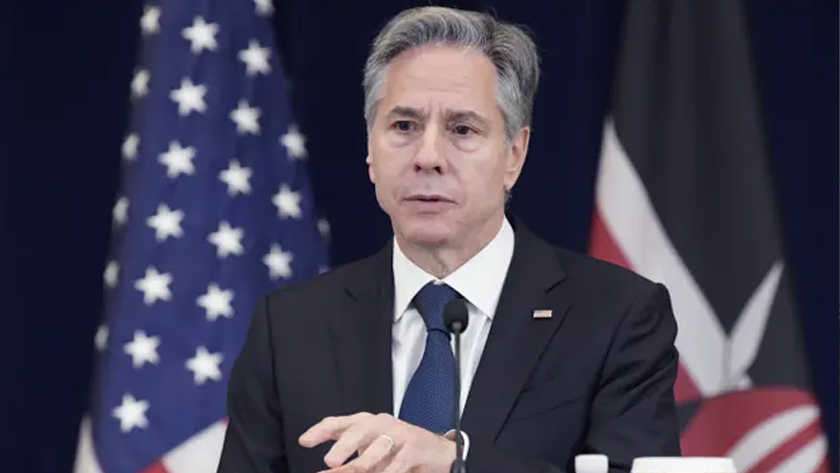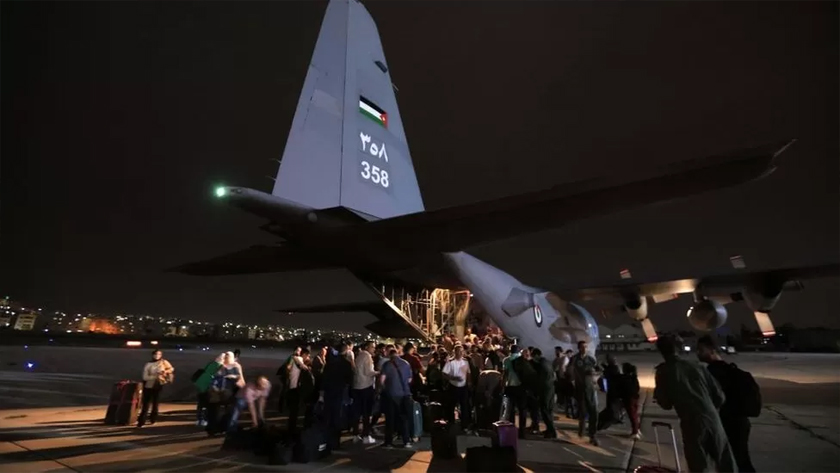The Sudan Armed Forces (SAF) said the US and Saudi Arabia mediated the truce, scheduled to start at midnight local time (22:00 GMT Monday).
US Secretary of State Antony Blinken said on Monday that the ceasefire deal followed two days of intense negotiations. Sudan’s army and the rival paramilitary Rapid Support Forces (RSF) have not abided by several temporary truce deals over the past week.

“During this period, the United States urges the SAF and RSF to immediately and fully uphold the ceasefire. To support a durable end to the fighting, the United States will coordinate with regional and international partners, and Sudanese civilian stakeholders,” Blinken said in a statement.
Fighting erupted between the army and the RSF paramilitary group on April 15 and has killed at least 427 people, knocked out hospitals and other services, and turned residential areas into war zones. Millions of people remain trapped in their homes in the capital Khartoum and are running short on food and water.
UN Secretary-General Antonio Guterres said that the violence in a country that flanks the Red Sea, Horn of Africa and Sahel regions “risks a catastrophic conflagration … that could engulf the whole region and beyond."
He urged the 15 members of the UN Security Council to use their clout to return Sudan to the path of democratic transition after a 2021 military coup that followed the fall of longtime ruler Omar al-Bashir in a popular uprising.
“We must all do everything within our power to pull Sudan back from the edge of the abyss … We stand with them at this terrible time,” Guterres said, adding that he had authorised temporary relocation of some UN personnel and families.
The Security Council has planned a meeting on Sudan on Tuesday.
At least two convoys involved in evacuations came under fire at the weekend. Diplomats have been targeted in attacks, and at least five aid workers killed.
Fighting calmed enough over the weekend for the US and the United Kingdom to get embassy staff out, triggering a rush of evacuations of hundreds of foreign nationals by countries ranging from Gulf Arab states to Russia, Japan and South Korea.
South Africa said on Monday that it has begun evacuating dozens of its citizens. Foreign ministry spokesperson Clayson Monyela told the press “they are being taken to a neighbouring country for safety”.
Paris said it had arranged evacuations of 491 people, including 196 French citizens and others from 36 different nationalities. A French warship was heading for Port Sudan to help pick up more evacuees.
Four German air force planes had evacuated more than 400 people of various nationalities from Sudan as of Monday.
Several countries sent military planes from Djibouti to fly people out from Khartoum, including to Port Sudan where some have boarded ships to Saudi Arabia.

Families with children crowded into Spanish and French military transport planes, while a group of nuns was among the evacuees on an Italian aircraft, photographs showed.
Scarce food, electricity, water
For those remaining in Africa’s third-largest country, where a third of the population of 46 million people needed aid even before the violence, the situation was increasingly bleak.
There are acute shortages of food, clean water, medicines and fuel and limited access to communications and electricity, with prices skyrocketing, said UN deputy spokesperson Farhan Haq.
According to media, he cited further reports of looting of humanitarian supplies and warehouses and said “intense fighting” in Khartoum and Darfur, as well as in Blue Nile, North Kordofan and Northern states, was hindering relief operations.
224
Read More:
Foreign nationals trapped in Sudan as violence escalates
UK military have evacuated diplomatic staff from Sudan: PM
Biden confirms US embassy staff, families evacuated from Sudan
Maryam Abolbagha

